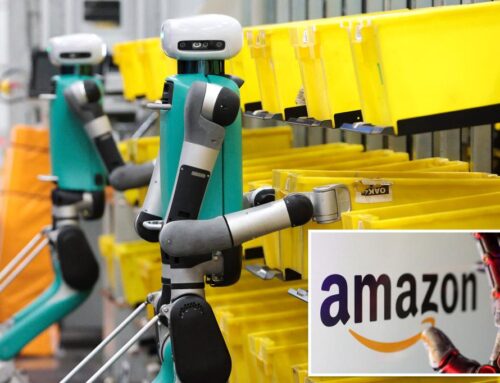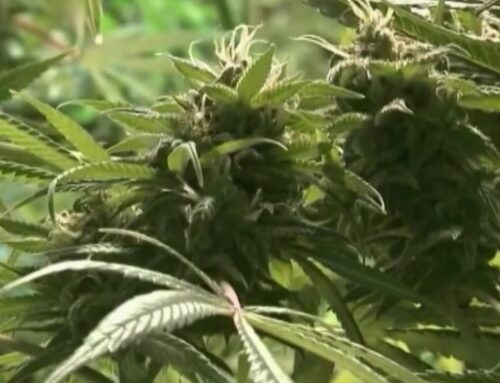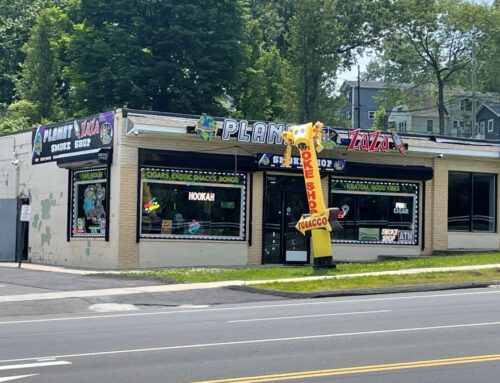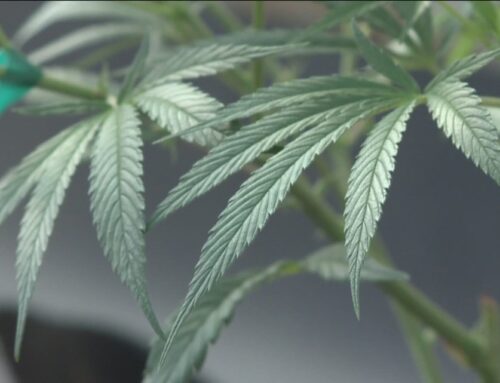World Environment Day: In Jamaica, the battle against plastics continues
June 5, 2025

Plastic garbage at Kingston Harbour, Jamaica. Photo by Emma Lewis, used with permission.
The theme for UN World Environment Day 2025 is “Beat Plastic Pollution,” and if you feel you have seen this slogan many times before, it is because the issue persists — on land, in rivers and waterways, and in the sea. In Jamaica, there will be clean-up events targeting plastics: Jamaica Public Service (JPS), the island’s power monopoly, for example, will clean up a section of the Palisadoes beach and a section of mangrove adopted by the JPS Foundation in the Adopt-A-Mangrove programme.
The Palisadoes, a fragile strip of land (tombolo) connecting Kingston, Port Royal and Jamaica’s international airport, has been the focus of innumerable clean-up sessions over the years, largely because it reflects the pollution of Kingston Harbour on one side and, to a lesser extent, the ocean on the other. The Palisadoes is a Ramsar Wetland of International Importance, but controversially, it has also been the site of destruction of the natural environment. Despite it being a Protected Area, Jamaican government agencies have been using it as an “entertainment zone.” As such, the area continues to struggle; a mangrove planting project that started 10 years ago has been constantly choked by solid waste and other types of pollution, and is now surrounded by a protective fence.
Theresa Rodriguez-Moodie, CEO of the Jamaica Environment Trust (JET), speaking with Global Voices via WhatsApp, noted that plastics impact every aspect of our lives:
This year’s theme, ‘Ending Plastic Pollution,’ is a powerful and urgent reminder that protecting the environment isn’t an abstract idea – it’s about real issues, like how plastic waste is choking our rivers, damaging our coastlines, harming wildlife, and even entering our food systems and our bodies.
JET has been at the forefront of local cleanups. Hundreds of organisations, from small primary schools and community groups to big corporations and government agencies, now participate in the annual International Coastal Cleanup Day, inaugurated by the Ocean Conservancy in 1986. Last year, over 7,000 volunteers collected more than 43,000 kilograms (94,799 pounds) of trash on some 153 kilometres (95 miles) of Jamaican coastline in just one day. The commonest items collected were, unsurprisingly, plastic bottles (close to 200,000) and over 122,000 plastic bottle caps.
The focus for 2025 is on textile and fashion waste, a significant component of municipal solid waste, particularly in urban households and markets. Many fabrics also contain a considerable amount of plastic. According to UN-Habitat, 11 percent of plastic waste globally comes from fashion and textiles.
In addition to JET’s successes in mobilising communities and civil society, one private sector organisation, the GraceKennedy Foundation, has been working in partnership with Clean Harbours Jamaica and The Ocean Cleanup on the herculean task of cleaning up Kingston Harbour. A common sight after heavy rains has always been plastic bottles and other debris floating in the harbour, carried there by streams of floating trash emitted from gullies and drains.
Over the past three years, the Kingston Harbour Cleanup Project (KHCP) has installed booms and interceptor technology in nine of the 11 most polluted gullies, trapping floating debris before it reaches the open water. The boom across the largest, Sandy Gully, is nearly 244 metres (over 800 feet) long. KHCP asserts that its efforts to date have prevented nearly three million kilograms of waste from entering the Harbour. To underscore this point, visitors to the downtown waterfront recently noticed a number of juvenile fish feeding close to the pier.
The importance of volunteer and community buy-in is essential at this stage. While there is much more to be done in terms of galvanising the corporate sector, including small businesses, momentum seems to be building. Caroline Mahfood, CEO of the GraceKennedy Foundation, believes that the impact is growing:
The Kingston Harbour Cleanup Project is one of the most ambitious environmental initiatives we’ve ever supported, and its impact continues to grow. We’re not only removing waste from the Harbour; we’re building awareness, empowering communities, and inspiring the next generation to become stewards of our marine environment. Tackling plastic pollution takes a collective effort, and we’re proud to be part of a partnership that is truly turning the tide.
So what happens to all the plastics collected? Recycling Partners of Jamaica, a non-profit, public-private sector partnership founded in 2014 that is in the midst of expanding its operations, is expected to get budgetary support from the Jamaican government in the next fiscal year. General Manager Gairy Taylor explained via WhatsApp that persistence is key:
This past year, one of the biggest challenges we faced was making recycling more accessible, making sure that every Jamaican, no matter where they are, has a simple and reliable way to dispose of their plastic bottles. We’ve also had to shift behaviours, working to make recycling feel like second nature. That’s taken a lot of ongoing outreach, education, and consistent engagement.
Despite the challenges, they have made remarkable progress. In just over two years, Jamaica’s PET plastic bottle recovery rate jumped from 11 to 40 percent, which Taylor sees as “a powerful reflection of the partnerships we’ve formed, the systems we’ve built, and the increasing public commitment to sustainability.” So far, they have collected over a billion bottles, and that number continues to climb. Taylor continued:
Recycling in Jamaica has huge potential. We want it to become an integral part of everyday life, transitioning from a novelty to a habit. That one bottle you dropped in the recycling bin contributed to the one billion collected over the last six years. Big change comes from small, consistent actions.
In his recent update to Parliament, Matthew Samuda, the minister responsible for the environment, noted that the Jamaican government intends to expand a pilot project for separating trash in government facilities, a measure many find long overdue. It will also be expanding its plastics ban initiative, which Samuda himself launched in 2019 and has been taking place in phases.
Nevertheless, bad environmental practices and habits by private sector entities and citizens persist. Adventurous birders, hikers, and visitors, for example, regularly come across illegal dumps, hidden away in off-road locations, often in mangroves. A good proportion of this appears to be construction waste, suggesting that building companies would prefer to dump waste anywhere that is convenient rather than drive to the local dump, which takes time and money.
On this and other waste disposal issues, public education needs to be considerably boosted, alongside stronger enforcement measures and prosecutions. In his recent parliamentary presentation, Minister Samuda described JET’s “Nuh Dutty Up Jamaica” as the “most impactful anti-litter campaign” aimed at behaviour change, suggesting that his administration may find ways to support and “re-energize” it.
In all of this, the consumer — the average citizen — has a significant role to play. JET’s Rodriguez-Moodie emphasises that “it’s up to us”:
Plastic pollution is one of the most visible and urgent environmental issues of our time. On World Environment Day, we’re reminded that the choices we make — what we buy, how we dispose of waste, and what we demand from companies and governments — can either worsen the crisis or help end it. We all have a role to play in building a future free from plastic pollution.
While 175 nations struggle towards agreement on a Global Plastics Treaty, with negotiations set to resume in August in Geneva, small island developing states like Jamaica have no option but to carry on the fight against plastic pollution, in all its shapes and forms.
Search
RECENT PRESS RELEASES
Related Post




